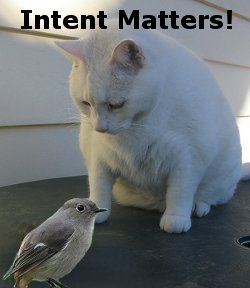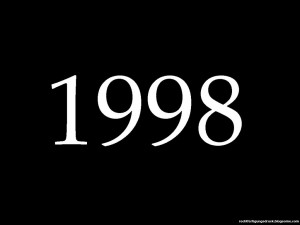A Story That Speaks to Life
 Perhaps because I love cats, this story touched me at a deep level. In 1947, the pride of London zoo was a beautiful white polar bear. It’s mother was dead and it never knew its father. Far from polar ice, it only knew the temperate weather of England and thousands of adoring visitors. Once it became unusually cold and froze the small lake within the bear’s enclosure. The ice was 2 to 3 inches thick and not safe to walk on. The bear tapped and cracked the ice and took a deep contented dive. But the huge animal never surfaced. The polar bear apparently panicked and could not find the original ice hole. It died beneath the ice by drowning! It could have easily cracked the ice, but it lacked the experience and the memory. It had not so much forgotten, but perhaps had never really known what it was to be a polar bear! I read this sad story in Reading the Clouds: Mission Spirituality for New Times by Anthony Gittins, an excellent book John Armstrong recommended for his ACT 3 cohort. How does this sad story speak to you? To your Christian journey?
Perhaps because I love cats, this story touched me at a deep level. In 1947, the pride of London zoo was a beautiful white polar bear. It’s mother was dead and it never knew its father. Far from polar ice, it only knew the temperate weather of England and thousands of adoring visitors. Once it became unusually cold and froze the small lake within the bear’s enclosure. The ice was 2 to 3 inches thick and not safe to walk on. The bear tapped and cracked the ice and took a deep contented dive. But the huge animal never surfaced. The polar bear apparently panicked and could not find the original ice hole. It died beneath the ice by drowning! It could have easily cracked the ice, but it lacked the experience and the memory. It had not so much forgotten, but perhaps had never really known what it was to be a polar bear! I read this sad story in Reading the Clouds: Mission Spirituality for New Times by Anthony Gittins, an excellent book John Armstrong recommended for his ACT 3 cohort. How does this sad story speak to you? To your Christian journey?
Continue reading →
My Original Intent…
 My post–Samuel Lee was not overbearing–“happened” as I was intending to write about authoritarian Christian leadership (again!): “NOT lording it over others like the rulers of the Gentiles” (Mt 20:25-26; Mk 10:42-43), “NOT overbearing” (Tit 1:7), and “NOT lording it over those entrusted to our care” (1 Pet 5:2-3). My original title was “Not Overbearing, but Meek.” But such a title was too bland and boring and it would not generate much interest or discussion. So I changed it to a more provocative title, and provocative it was! Sorry.
My post–Samuel Lee was not overbearing–“happened” as I was intending to write about authoritarian Christian leadership (again!): “NOT lording it over others like the rulers of the Gentiles” (Mt 20:25-26; Mk 10:42-43), “NOT overbearing” (Tit 1:7), and “NOT lording it over those entrusted to our care” (1 Pet 5:2-3). My original title was “Not Overbearing, but Meek.” But such a title was too bland and boring and it would not generate much interest or discussion. So I changed it to a more provocative title, and provocative it was! Sorry.
Continue reading →
Samuel Lee Was Not Overbearing
 Samuel Lee was Meek (and Authoritarian). Those who read this blog know I have a very positive sentiment toward Samuel Lee, our UBF founder. I freely acknowledge that Lee was authoritarian. (This still offends some who insist that UBF people should never critique their leaders, which is perhaps an Asian ideal.) But Lee was not overbearing in his personal interaction with me, even though he was authoritarian. He spoke to me about intimate details of his own life. When he rebuked me, it was often gentle and laced with appropriate humor that had me smiling while knowing I was being reprimanded. Whenever he sensed I wanted something (which I often did not vocalize), he would do his best to comply with my wishes even when he disagreed with me. I always felt that Lee knew my heart, both the good and the bad. Because of many such memorable expressions of meekness extended toward me over the 2 decades that I knew him, I freely acknowledge that Lee was clearly an anointed man of God who loved me as my spiritual father, and who inspired many among Koreans and natives in many nations to live for Christ and for his kingdom, including myself to this very day.
Samuel Lee was Meek (and Authoritarian). Those who read this blog know I have a very positive sentiment toward Samuel Lee, our UBF founder. I freely acknowledge that Lee was authoritarian. (This still offends some who insist that UBF people should never critique their leaders, which is perhaps an Asian ideal.) But Lee was not overbearing in his personal interaction with me, even though he was authoritarian. He spoke to me about intimate details of his own life. When he rebuked me, it was often gentle and laced with appropriate humor that had me smiling while knowing I was being reprimanded. Whenever he sensed I wanted something (which I often did not vocalize), he would do his best to comply with my wishes even when he disagreed with me. I always felt that Lee knew my heart, both the good and the bad. Because of many such memorable expressions of meekness extended toward me over the 2 decades that I knew him, I freely acknowledge that Lee was clearly an anointed man of God who loved me as my spiritual father, and who inspired many among Koreans and natives in many nations to live for Christ and for his kingdom, including myself to this very day.
Continue reading →
Ben-2012 to Ben Toh-1998
 A friend described me as “scientific and analytical.” I accepted her assessment. I realize (from my wife) that it is a pain to be scientifically and analytically scrutinized. I, Ben-2012, will now scientifically and analytically cause some pain to Ben Toh-1998.
A friend described me as “scientific and analytical.” I accepted her assessment. I realize (from my wife) that it is a pain to be scientifically and analytically scrutinized. I, Ben-2012, will now scientifically and analytically cause some pain to Ben Toh-1998.
Dear Ben Toh-1998
Continue reading →
Have You Lost Your Freedom?
 Are you truly free as a Christian? The unique distinctive of Christianity among all the world’s religions is freedom (Gen 2:16; Jn 8:32; Gal 5:1; 2 Cor 3:17). I love the song “I’m Free” by The Who. I don’t remember the lyrics other than the chorus and the catchy guitar chords. When I became a Christian in 1980, I experienced the exhilaration of truly being free because of the unfathomable grace of Jesus in spite of all my sins. But after being in the same UBF chapter for 25 years, I felt I lost my freedom. I am not blaming my chapter or anyone in particular. It was entirely my own fault. I allowed myself to feel enslaved by UBF traditions and expectations.
Are you truly free as a Christian? The unique distinctive of Christianity among all the world’s religions is freedom (Gen 2:16; Jn 8:32; Gal 5:1; 2 Cor 3:17). I love the song “I’m Free” by The Who. I don’t remember the lyrics other than the chorus and the catchy guitar chords. When I became a Christian in 1980, I experienced the exhilaration of truly being free because of the unfathomable grace of Jesus in spite of all my sins. But after being in the same UBF chapter for 25 years, I felt I lost my freedom. I am not blaming my chapter or anyone in particular. It was entirely my own fault. I allowed myself to feel enslaved by UBF traditions and expectations.
Psalms in the Key of Life
 The book of Psalms has played a vital role in Jewish and Christian spirituality. Dietrich Bonhoeffer called it “the prayer book of Jesus Christ.” Jews at the time of Jesus prayed the psalms so often that, without even trying, they would have easily memorized the entire book. St. Benedict, the sixth-century Christian monk, made psalms the key component of his system of fixed-hour prayer. Reformers John Calvin and Ulrich Zwingli placed such heavy emphasis on psalms that, to this day, some Presbyterian and Reformed churches allow no music in public worship except for a capella singing of psalms.
The book of Psalms has played a vital role in Jewish and Christian spirituality. Dietrich Bonhoeffer called it “the prayer book of Jesus Christ.” Jews at the time of Jesus prayed the psalms so often that, without even trying, they would have easily memorized the entire book. St. Benedict, the sixth-century Christian monk, made psalms the key component of his system of fixed-hour prayer. Reformers John Calvin and Ulrich Zwingli placed such heavy emphasis on psalms that, to this day, some Presbyterian and Reformed churches allow no music in public worship except for a capella singing of psalms.
Many Christians regard the psalms as divinely inspired model prayers that we ought to imitate. But if you actually try to use the psalms in your devotional life, you will find aspects of them that are puzzling. Some psalms are difficult to understand. Others display attitudes that are apparently unChristlike. What should we do with the so-called cursing psalms that wish injury, violence and death on one’s enemies? And how should we handle verses like Psalm 131:1, “My heart is not proud, LORD, my eyes are not haughty…” It seems impossible to pray this without making yourself seem unbearably proud. Most English translations of the psalms maintain a style reminiscent of the King James Version, giving them a noble and churchy sound. But if you were to express the psalms in everyday language, they would appear so raw, unholy and unChristian that many congregations would think they are inappropriate for use in church.
The Fallibility of Paul
 Lately I’ve been spending a lot of time thinking about how to approach Scripture. When I was discipled in my present church, I was taught a very specific hermeneutical method which became the eyeglasses through which I read the Bible. I described that method in my last two articles here and here. That method did help me to grow for a while, but as the years passed it lost its effectiveness. I stopped asking the creative, fundamental and tough questions about Scripture that would cause me to wrestle with deeper issues of life and faith.
Lately I’ve been spending a lot of time thinking about how to approach Scripture. When I was discipled in my present church, I was taught a very specific hermeneutical method which became the eyeglasses through which I read the Bible. I described that method in my last two articles here and here. That method did help me to grow for a while, but as the years passed it lost its effectiveness. I stopped asking the creative, fundamental and tough questions about Scripture that would cause me to wrestle with deeper issues of life and faith.
Basically, I was taught to examine short portions of Scripture – a few verses or a chapter at a time – and then carefully notice the details, deduce the meaning, and strive for personal application. It was assumed that every passage had a self-contained message aimed directly at my situation today. I was supposed to ask myself: Are there promised to claim? Commands to obey? Sins to be repented of? The outcome of every Bible study was supposed to be some kind of revelatory, life-changing experience (accepting “one word”) that could be shared in a written testimony. If that experience didn’t happen, it was because something was wrong with me, because I hadn’t tried hard enough, gone deep enough, repented sincerely enough, and so on. To strive for anything less than a personal revelatory experience in each Bible study was to demonstrate a lack of faith in the Bible as the inspired word of God.
A Real Testimony by Ben Toh-1998
 I found an old diary I left in Manila, Philippines, at the UBF chapter where I am staying. In it, I wrote on Easter Sun, Apr 12, 1998 a testimony I had forgotten about entitled “Thanksgiving Despite Myself.” Inspired by Joe-2005, I am sharing what I wrote, which will please UBF people. They might wonder why I am no longer that person, though I am still that person, except for theological adjustments regarding dualism, gnosticism, patriarchy, paternalism, anthropocentricity, authoritarianism, and the gospel. Joe-2005 wrote an imaginary report in 2012. I actually did write this in 1998, which I had never shared with anyone. As Joe-2012 responded to Joe-2005, Ben-2012 might respond to Ben Toh-1998. This is what I wrote:
I found an old diary I left in Manila, Philippines, at the UBF chapter where I am staying. In it, I wrote on Easter Sun, Apr 12, 1998 a testimony I had forgotten about entitled “Thanksgiving Despite Myself.” Inspired by Joe-2005, I am sharing what I wrote, which will please UBF people. They might wonder why I am no longer that person, though I am still that person, except for theological adjustments regarding dualism, gnosticism, patriarchy, paternalism, anthropocentricity, authoritarianism, and the gospel. Joe-2005 wrote an imaginary report in 2012. I actually did write this in 1998, which I had never shared with anyone. As Joe-2012 responded to Joe-2005, Ben-2012 might respond to Ben Toh-1998. This is what I wrote:
Continue reading →

Last 30 Comments